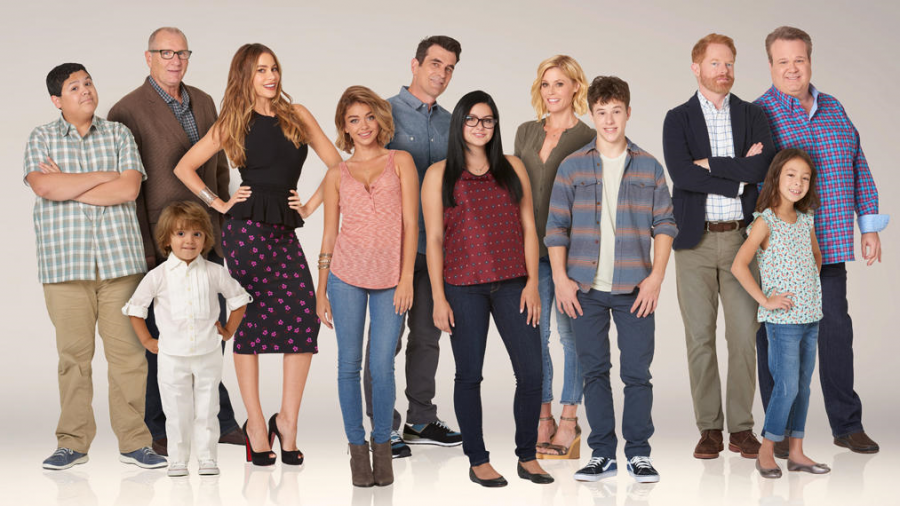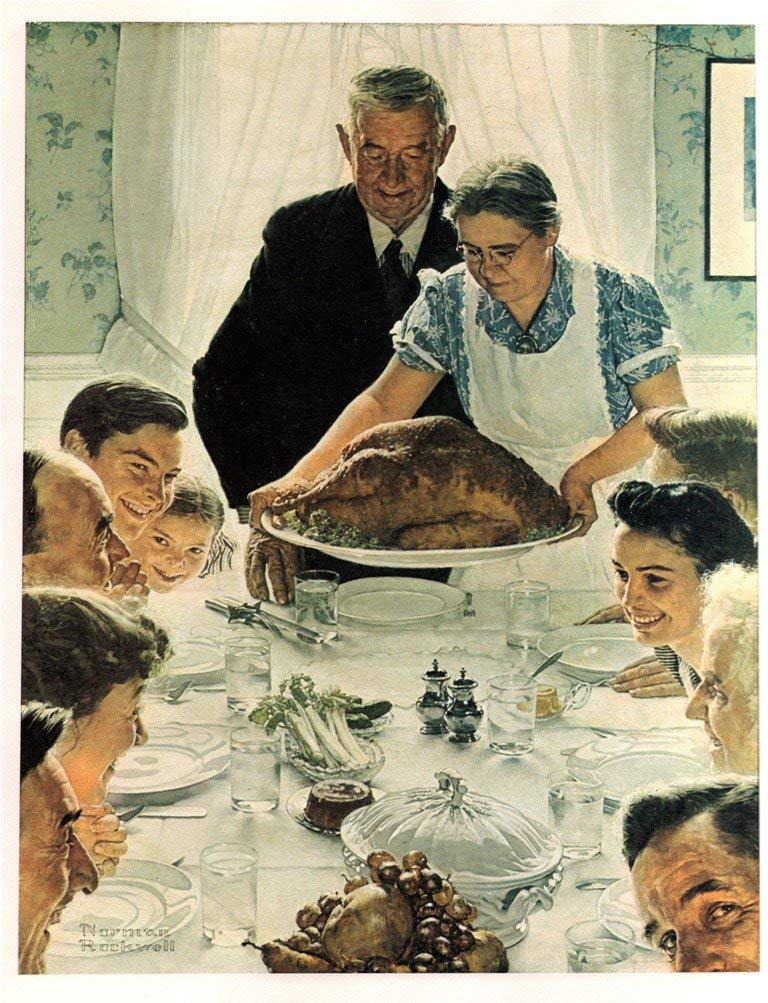This post is concludes my series based on David Brooks’ article entitled “The Nuclear Family was a Mistake”. Previous posts can be read HERE and HERE and HERE .
Hopefully, my previous posts expressed some legitimate questions and concerns about the nuclear family, particularly the church’s idolization of a “ideal nuclear family” as a Biblical model.
The latter portion of “The Nuclear Family was a Mistake” addresses the future of families and possible solutions to the disintegration of families in our society. One thing I’m relative sure about is that the “ideal nuclear family” will not return and any efforts to accomplish such are useless and counter-productive.
“We’ve left behind the nuclear-family paradigm of 1955. For most people it’s not coming back”.
I am not suggesting abandonment of the core values of God ordained family but am arguing for understanding cultural realties and reimagining family. Because thinking out of the box is an oxymoron in my Christian experience, reimagining family is subject worthy of its own discussion. I hope some of you biblical scholars will pick up the mantle on that.
In my view, manyWestern Christians are faced with a clear choice… push our heads deeper into the sand and tighten our grip on a nostalgic and unrealistic image of family OR wake up to the need to reimagine and rethink family and its future and our response as Christ followers to that reality. This is no small matter, and, above my pay grade, but not an impediment to my voice of concern.
The remainder of this post will be directed at Brooks’ examination of the future of families, particularly the idea of forged families.
Resurgence of extended families
..recent signs suggest at least the possibility that a new family paradigm is emerging. Many of the statistics I’ve cited are dire. But they describe the past—what got us to …where we are now. In reaction to family chaos, accumulating evidence suggests, the prioritization of family is beginning to make a comeback. Americans are experimenting with new forms of kinship and extended family in search of stability.
…a new set of values, has emerged. That may be happening now—in part out of necessity but in part by choice. Since the 1970s, and especially since the 2008 recession, economic pressures have pushed Americans toward greater reliance on family. Starting around 2012, the share of children living with married parents began to inch up. And college students have more contact with their parents than they did a generation ago. We tend to deride this as helicopter parenting or a failure to launch, and it has its excesses. But the educational process is longer and more expensive these days, so it makes sense that young adults rely on their parents for longer than they used to.
In 1980, only 12 percent of Americans lived in multigenerational households. But the financial crisis of 2008 prompted a sharp rise in multigenerational homes. Today 20 percent of Americans—64 million people, an all-time high—live in multigenerational homes.
The revival of the extended family has largely been driven by young adults moving back home. In 2014, 35 percent of American men ages 18 to 34 lived with their parents. In time this shift might show itself to be mostly healthy, impelled not just by economic necessity but by beneficent social impulses; polling data suggest that many young people are already looking ahead to helping their parents in old age.
Another chunk of the revival is attributable to seniors moving in with their children. The percentage of seniors who live alone peaked around 1990. Now more than a fifth of Americans 65 and over live in multigenerational homes. This doesn’t count the large share of seniors who are moving to be close to their grandkids but not into the same household.
Resurgence of extended families is a promising aspect of a new family paradigm, especially for Christian communities. Extended family more closely resembles a biblical family model. From a covenant perspective, membership in the covenant community is more communal than individualistic.
“Extended families have two great strengths. The first is resilience. An extended family is one or more families in a supporting web. Your spouse and children come first, but there are also cousins, in-laws, grandparents—a complex web of relationships among, say, seven, 10, or 20 people. ”
Despite the positives of extended families, their re-emergence in today’s culture brings challenges. Beyond obvious changes such as residential requirements, there will be interesting challenges to Christian churches that have built their ministries on a nuclear family model. For example, structures that support the idea of nuclear families, such as separate teen ministries and worship which implicitly encourage separation and independence will be found to be impediments to support of extended families. Curriculums for family and child rearing will need to be reevaluated and revised.
Forged Families
Over the past several decades, the decline of the nuclear family has created an epidemic of trauma—millions have been set adrift because what should have been the most loving and secure relationship in their life broke. Slowly, but with increasing frequency, these drifting individuals are coming together to create forged families. These forged families have a feeling of determined commitment.
….in at least one respect, the new families Americans are forming would look familiar to our hunter-gatherer ancestors from eons ago. That’s because they are chosen families—they transcend traditional kinship lines.
The forged family Brooks write about is both encouraging and frightening. I find it encouraging because it offers hope for redeeming family in the most idealistic ways.
“The scene is one many of us have somewhere in our family history: Dozens of people celebrating Thanksgiving or some other holiday around a makeshift stretch of family tables—siblings, cousins, aunts, uncles, great-aunts. The grandparents are telling the old family stories for the 37th time. “It was the most beautiful place you’ve ever seen in your life,”
Forged families can be frightening:
Perhaps a metaphor of forged family and the future American family may be, ironically, the TV series Modern Family. I have not watched any episodes, but the description that follows seems prescient.

Modern Family revolves around three different types of families (nuclear, step- and same-sex) living in the Los Angeles area, who are interrelated through Jay Pritchett and his children, daughter Claire and son Mitchell. Patriarch Jay is remarried to a much younger woman, Gloria Delgado Pritchett (née Ramirez), a passionate Colombian immigrant with whom he has a young son, Fulgencio Joseph “Joe” Pritchett, and a son from Gloria’s previous marriage, Manuel “Manny” Delgado.
Jay’s daughter Claire was a homemaker, but has returned to the business world. She is now the chief executive of her father’s business, Pritchett’s Closets and Blinds. She is married to Phil Dunphy, a realtor and a self-professed “cool dad”. They have three children: Haley Dunphy, a stereotypically ditzy teenage girl;Alex Dunphy, an intelligent but nerdy middle child; and Luke Dunphy, the off-beat only son.
Jay’s lawyer son Mitchell and his husband Cameron Tucker have one adopted daughter, Lily Tucker-Pritchett. As the name suggests, this family represents a modern-day family and episodes are comically based on situations that many families encounter in real life.
Emergence of forged families will require Christians to face cultural realities. Forged families as defined in “The Nuclear Family was a Mistake” implicitly include: unmarried partners, same-sex marriage, single parents, unwed mothers, and sundry other non-conforming relationships.
Americans are hungering to live in extended and forged families, in ways that are new and ancient at the same time. This is a significant opportunity, a chance to thicken and broaden family relationships, a chance to allow more adults and children to live and grow under the loving gaze of a dozen pairs of eyes, and be caught, when they fall, by a dozen pairs of arms. For decades we have been eating at smaller and smaller tables, with fewer and fewer kin. It’s time to find ways to bring back the big tables.
All the while we are finding hope and encouragement for family, we will have to reconcile those opportunities with faith and doctrine. It is not an option to continue sticking our head in the sand.

